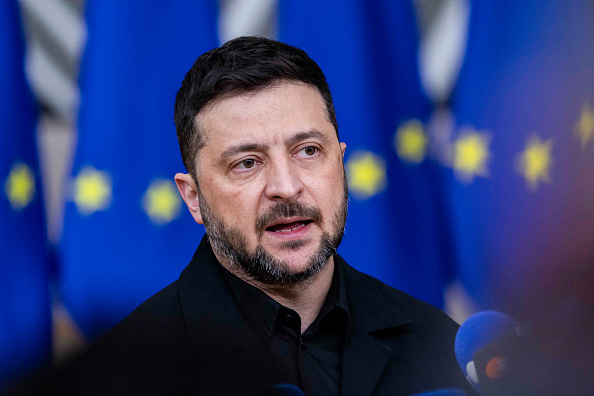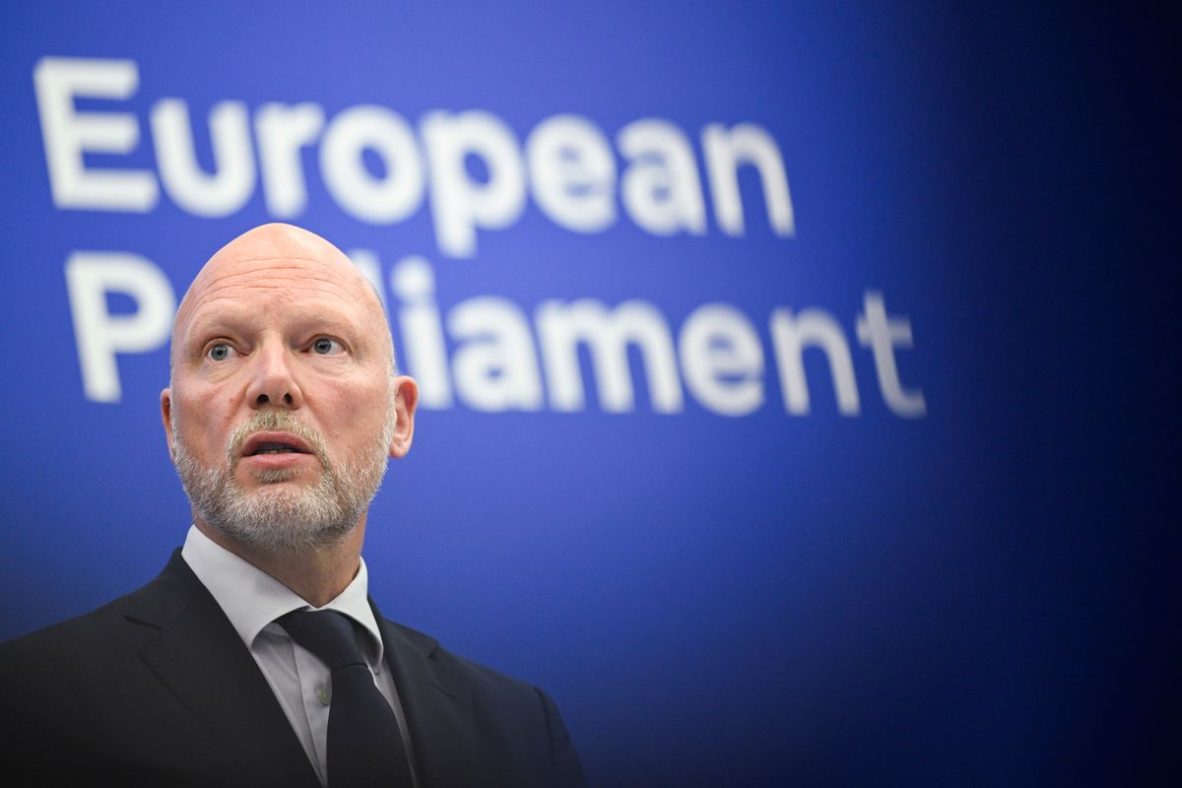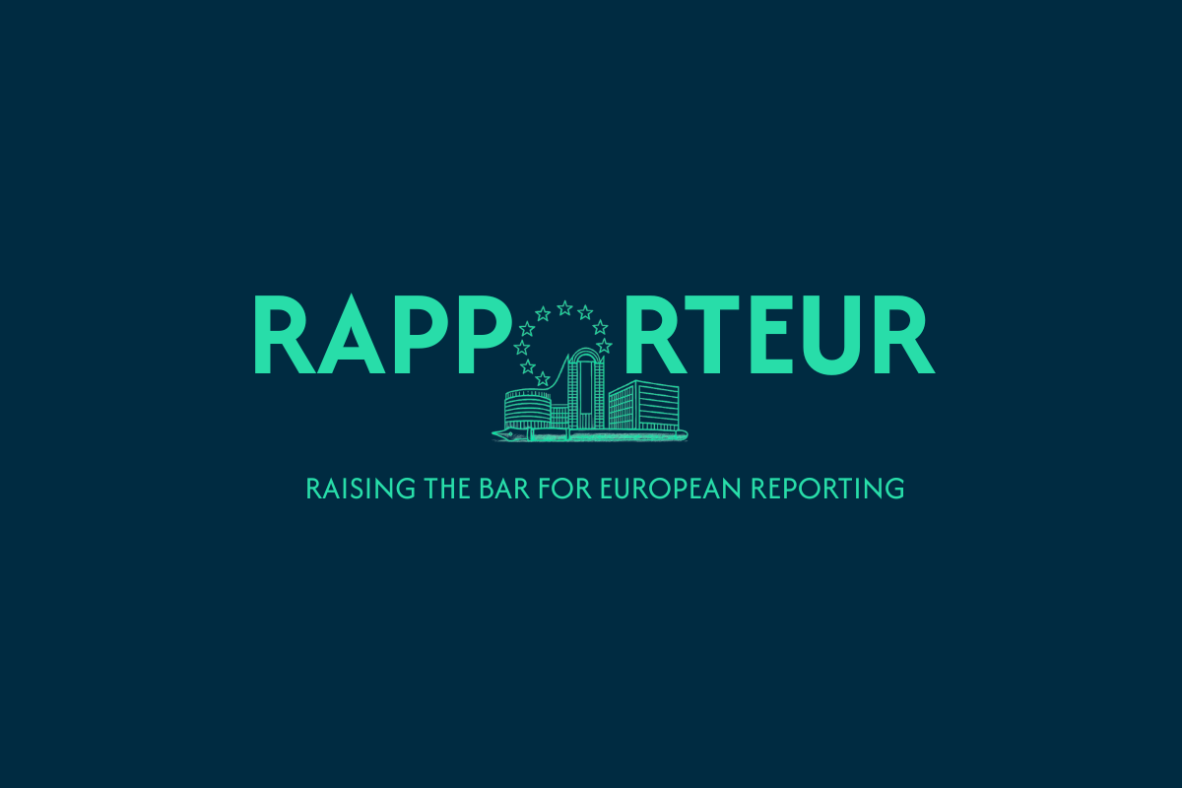Parliament poised to go populist
In today’s edition: Parliament braces for a potential first EPP–Patriots alliance in Thursday’s due diligence vote, the EU’s top judge blasts Viktor Orbán over rule-of-law abuse, and lawmakers’ short-lived MFF rebellion fizzles after Commission concessions
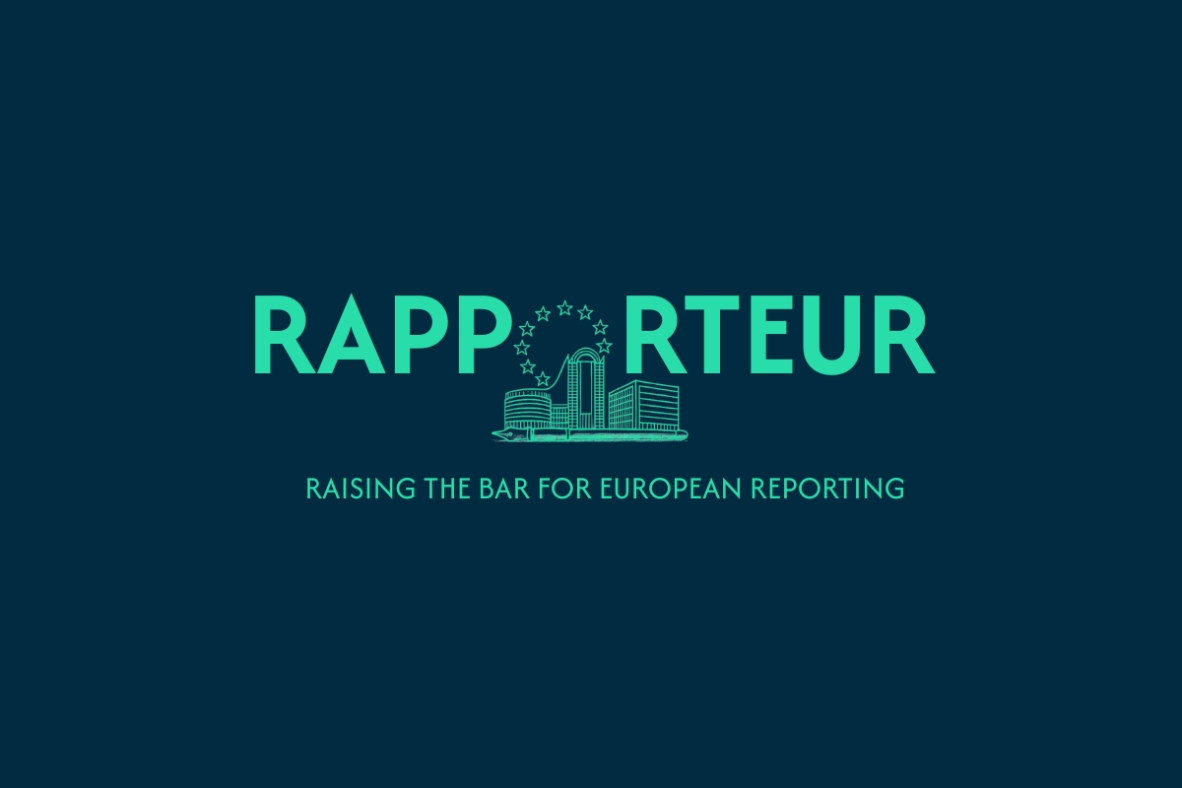
Welcome to Rapporteur, now officially two months old! This is Eddy Wax, back in Brussels after a spell in Blighty, where I found it oddly impossible to think about the EU, as if I were trapped in a European politics version of Severance. Fellow Lumon employee Nicoletta Ionta and all our news-refiners are by my side.
Need-to-knows:
- Parliament: Corporate due diligence vote may mark first concrete EPP-Patriots alliance
- Hungary: EU’s top judge hits out at Viktor Orbán, warning that the bloc’s funds must not enrich a ruling elite
- MFF: Lawmakers’ brief rebellion fizzles as Commission concessions put €2 trillion talks back on track
On the roundabout: Running out of space, Parliament hunts for a warehouse to stash 15,000 items amid renovations.
Today’s edition is powered by EuropaBio
Making the difference – Biotechnology for Europe
Biotechnology delivers for health, sustainability, and competitiveness. As Europe prepares for the EU Biotech Act, EuropaBio leads the conversation shaping our future. Discover how this legislation empowers Europe.
Learn more on our dedicated webpage
From the capital
The EU bubble trudges back to work today after a leisurely bank holiday weekend, into what could well be a watershed moment for Europe’s far-right.
On Thursday, the European Parliament will vote on a contentious bill to strip back corporate due diligence requirements, with signs pointing to a centre-right deal with the far-right. Viktor Orbán and Marine Le Pen’s Patriots for Europe – along with parts of Manfred Weber’s European People’s Party – are itching for it.
For all the talk of the new populist-right Parliament, the alliance has yet to materialise in any meaningful way, beyond symbolic non-binding votes on things like whether to call Venezuela’s far-left President Nicolás Maduro a dictator. Thursday could change all that.
A right-to-far-right majority, however slim, could smash the far-right taboo and set a precedent for all the other burden-slashing efforts coming down the pike. And while the EPP would spin it as business-friendly pragmatism, the Patriots would shout from the rooftops that their plan to prise the centre-right away from the socialists has worked a charm.
Defections from the Socialists unwilling to back a mucky centrist compromise tanked last month’s initial vote. Now the EPP – having since made a show of turning left – feels justified in making an alternative pact.
Greens sound almost resigned. “I find it outrageous that EPP slams the door on a pro-European solution, refusing for weeks to meet with the … democratic groups, and instead [goes] into an alliance with the extreme right,” said Green negotiator Kira Marie Peter-Hansen.
The last amendments can be submitted today. The only option that’s not possible is more stasis and chaos. Roberta Metsola faces intense pressure from EU leaders to deliver a decisive vote so the bloc’s crusade against red tape can continue. She’ll meet Emmanuel Macron, no less, on Friday.
Given that the French parliament recently – and for the first time – adopted a law proposed by the far-right, the pair will presumably have a lot to talk about.
Two Hungary hand grenades
In previously unreported remarks, the EU’s top judge slammed Viktor Orbán’s Hungary at a rule-of-law event in Brussels this week, my colleague Magnus Lund Nielsen reports.
Court of Justice chief Koen Lenaerts stressed that EU funds must be used “so that they do not serve to enrich an oligarchy surrounding a ruler or a ruling party” – a clear swipe at Orbán, whom critics accuse of transforming Hungary into an openly corrupt state based on patronage.
Orbán, however, appears newly emboldened following his recent trip to the White House, argues Frank Furedi – who accompanied the Hungarian PM – in an op-ed for Euractiv. The PM boasted about being promised a US “financial shield” that would protect Budapest from any external shocks, including, presumably, those from Brussels.
“Europe’s establishment will continue to lecture Orbán, and he will continue to ignore them,” writes Furedi, who runs the Hungary-backed MCC think tank.
The rebellion that flopped
So much for the uprising. The €2 trillion EU budget talks are back to square one, as our MFF reporter Jacob Wulf Wold reports. MEPs called off their budget rebellion on Monday after carefully calibrated concessions from the Commission, putting the negotiations back on a familiar track. But did they miss their shot to truly shape the outcome?
By Tuesday, EU countries had reaffirmed that they can still do as they please with the budget. Ambassadors warmed to some of the proposed changes – including new safeguards for regions and a dedicated rural development funding goal – but nothing is guaranteed. The balance of power is firmly tilted towards capitals, not Parliament.
In any case, these changes are likely the ones that were already acceptable to the Council – hence why the Commission proposed them in the first place. “Quite cheap,” as one diplomat put it. One Commission suggestion the countries are not taking on board: giving Parliament a bigger role. Fancy that!
Denmark fails to kill minimum wage law
Denmark and Sweden’s challenge to the EU law requiring governments to set “adequate” minimum wages and allow for collective bargaining mostly failed in court on Tuesday, in a ruling that preserves the Commission’s social measures.
Had the two Nordic countries prevailed, some feared it might have cast a long shadow over Brussels’ social agenda, already under pressure from a more right-leaning political climate and a Trump-dominated world.
The Commission cheered the ruling, which left most of the directive, adopted in 2022, intact. Countries including the Netherlands and Cyprus are now expected to transpose it into their national law. Buoyed by the outcome, Executive VP Roxana Mînzatu is expected to come forward with a legal proposal aimed at promoting “quality jobs” next year.
Money talks
Eurozone finance ministers meet today to discuss the bloc’s ever-so-slightly improving economic outlook, banking regulations, and the digital euro, according to Thomas Møller-Nielsen.
A separate finance ministers’ meeting on Thursday will take up the Commission’s proposed €140 billion “reparation loan” for Ukraine, which seeks to harness immobilised Russian sovereign assets held in Belgium to support Kyiv.
Despite Belgian qualms, diplomats think a breakthrough is still possible before December’s European Council – which would avoid the need for alternatives, such as joint EU debt, to plug Kyiv’s $65 billion financing gap for 2026 and 2027.
“I think the member states, and the leaders, are generally open to addressing the concerns of the Belgian government,” one senior diplomat said. “So I think we’ll get there.”
Solidarity creaks
Brussels is bracing for renewed friction between Northern and Southern capitals as the Commission unveils the first annual “migration management cycle,” a key test of the bloc’s new Asylum Pact.
The EU’s new “solidarity pool” will determine how much support each capital must provide to those under migratory pressure. The Commission found that Greece, Cyprus, Spain, and Italy are currently under such pressure and will need to receive support from other countries.
But the assessment risks reopening old political wounds. Belgium and the Netherlands have urged that compliance with the Dublin Regulation be a precondition for receiving support – a tall order for frontline states – warning that systemic shortcomings could justify withholding contributions.
“While this file offers plenty of fuel for a fight among member states, all sides understand that everyone stands to win from a functioning Pact,” one EU diplomat told Rapporteur. “So we’re all very careful with matches.”
Fresh hold-up for equality bill
Hopes of getting the Equal Treatment Directive over the line appear to be fading. In a document seen by Nicoletta, Denmark said it’s “unable to put forward a new compromise text.” The directive would require countries to adopt national laws on anti-discrimination, equal access to social rights, education, goods and services, and the protection of minorities.
Three countries “maintained general reservations,” according to the Danes – without specifying which. Rapporteur understands Czechia, Italy and Germany, which have already voiced opposition to the directive, are still holding out. Berlin wants provisions on education and social protection excluded.
In July, the directive was revived after the Commission had initially decided to scrap it, following 17 years of stalling.
The capitals
PARIS 🇫🇷
French MPs have until midnight today to complete scrutiny of the Social Security Financing Bill (PLFSS), with more than 380 amendments still to be voted on. Among them is Article 45 – tabled by the Socialist Party – which would suspend the government’s pension reform until after the 2027 presidential election. The measure, offered as a condition for refraining from a censure motion, is expected to widen the public deficit by €100 million in 2026 and by €1.4 billion the following year.
ROME 🇮🇹
As Italy enters the final leg of its autumn marathon of regional elections, Giorgia Meloni is pinning her hopes on an upset in Puglia, a region long seen as a centre-left stronghold. “Predictions can always be overturned,” she said. So far, the centre-left has retained Tuscany, while Meloni’s right-wing coalition has claimed victories in Marche – the only genuinely competitive contest of the season – and Calabria. The 23-24 November vote in Puglia, Veneto, and Campania will close Italy’s regional election cycle for the year.
MADRID 🇪🇸
Spain’s main opposition Popular Party on Tuesday nominated Juanfran Pérez Llorca as president of the Valencian Community, following the resignation of Carlos Mazón. Mazón stepped down last week amid mounting criticism of his handling of last year’s catastrophic floods, which left 229 dead in the Valencia region. The far-right Vox party, which underpins the PP-led regional government and has been pushing for early elections, would need to back Llorca’s appointment in the Valencian parliament.
WARSAW 🇵🇱
The European Commission said on Tuesday that Poland could seek a full or partial exemption from migrant relocations or related financial contributions under the EU’s Migration and Asylum Pact, citing pressure from hosting Ukrainian refugees and ongoing tensions along the Belarusian border. The issue remains politically charged, with the opposition Law and Justice party accusing PM Donald Tusk’s coalition of yielding to Brussels and preparing to accept migrants from the Middle East and Africa.
BRATISLAVA 🇸🇰
One-third of all VAT and customs fraud cases investigated by the European Public Prosecutor’s Office are linked to Slovakia, European Chief Prosecutor Laura Codruța Kövesi told Denník N. She said Slovakia has become a major transit hub for illicit financial flows, with extensive links to money laundering. Since Robert Fico’s coalition took power in 2023, concerns have grown over Slovakia’s commitment to fighting financial crime, particularly after a controversial criminal code reform that reduced penalties and statutes of limitations for such offences.
BELGRADE 🇷🇸
Hundreds of students and residents gathered on Sunday under the slogan “We Are a Living Wall” to protest the planned demolition of the former Yugoslav Army General Staff buildings, which were bombed by NATO in 1999. Located in the heart of Belgrade, the site is to be leased for 99 years to a company owned by Jared Kushner, Donald Trump’s son-in-law, who plans to build a luxury hotel. The demonstration came four days after the Serbian parliament adopted a special law to fast-track the project.
Schuman roundabout
Hard cell: The EU’s new “intelligence body” is apparently so top secret and powerful that its existence was leaked to… the Financial Times and then immediately discussed by Commission spokespeople on Wednesday.
Of course, there will be no EU intelligence body. Rather, the Commission said it wants to build a “cell” – a strange lexical choice reminiscent of a “terrorist cell,” an Excel spreadsheet, or a microscopic fleck – to coordinate intelligence sharing, even though a unit within the EEAS already does that.
As some commentators have noted, sharing intelligence within EU institutions is hard enough as it is. The move is also likely to further inflame tensions between Ursula von der Leyen and Kaja Kallas.
Result: Not much intelligence, and even less agency.
Full memory: The EU Parliament needs a warehouse to park its stuff while its main Spaak building gets renovated, according to a document made public at my request. MEPs are hunting for up to 10,000 m² near Brussels to store around 15,000 pieces of furniture and assorted paraphernalia. The Commission and Council, meanwhile, share a huge 21,000 m² warehouse outside Brussels, in Neder-Over-Heembeek, roughly the size of three football pitches.
Also on Euractiv
Explainer: What’s next for Europe’s defence push?
The EU made progress on key defence files this autumn, pitching new projects and unlocking…
5 minutes
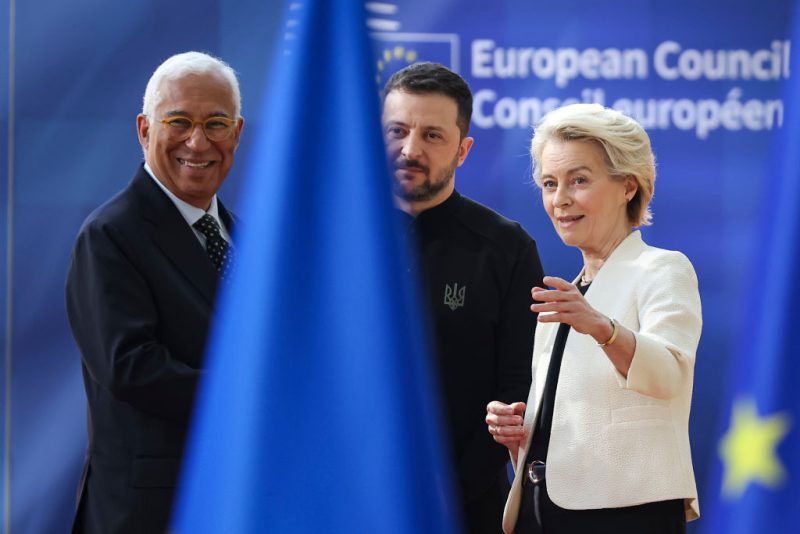
The EU is racing to turn a flurry of defence pledges into reality. After agreeing on nine “capability coalitions” and four flagship projects, Brussels now faces a tangle of deadlines leading up to its 2030 readiness goal.
Key milestones include a €150 billion SAFE loan scheme, a new €1 billion defence investment fund, and the rollout of flagship drone, air, and space defence projects.
The coming months will test whether the EU can cut through bureaucracy and funding bottlenecks to match its new ambitions on defence and support for Ukraine.
Agenda
📍 Eurogroup meeting
📍 European Parliament mini-plenary in Brussels, with debates on the Multiannual Financial Framework; the annual report on Asylum and Migration; the 2025 gender equality strategy; marine biodiversity conservation; the illegal declaration of secession by the entity created by Turkey in Cyprus; the European Maritime Safety Agency; and corporate taxation in Europe
📍 College of Commissioners meeting – expected to propose a democracy “shield” and culture “compass”
Contributors: Magnus Lund Nielsen, Jacob Wulf Wold, Nikolaus J. Kurmayer, Thomas Møller-Nielsen, Elisa Braun, Anupriya Datta, Laurent Geslin, Alessia Peretti, Inés Fernández-Pontes, Aleksandra Krzysztoszek, Natalia Silenska
Editors: Christina Zhao, Sofia Mandilara

